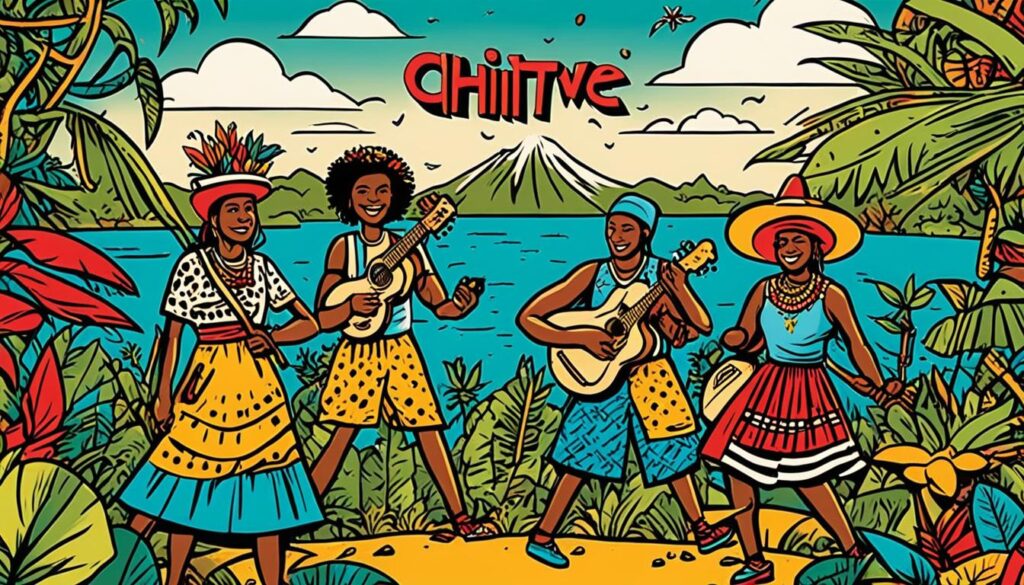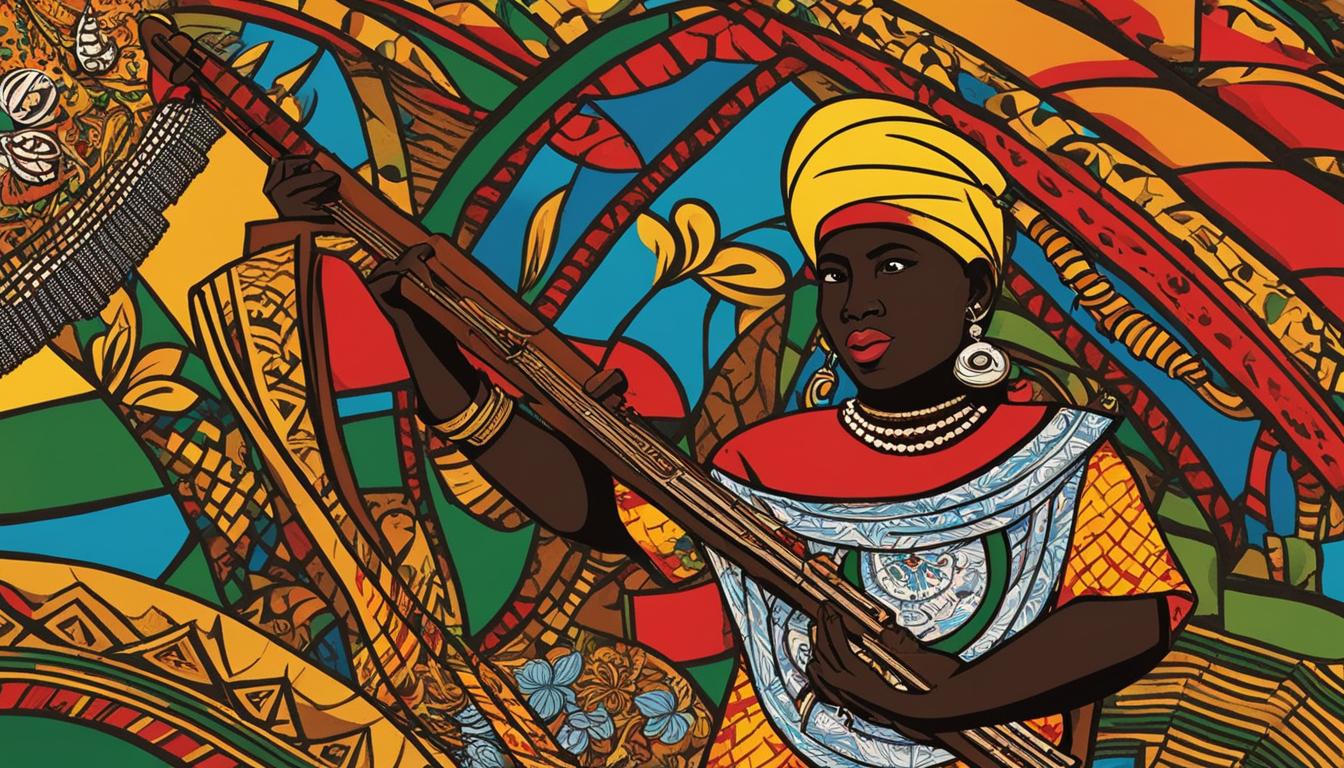Did you know that Mozambique, a multilingual country in southeastern Africa, is home to 22 indigenous Bantu languages?
While Portuguese serves as the official language, each of these local languages holds its own unique cultural significance. Among them, Chitewe stands out, spoken by approximately 150,000 people in central Mozambique.
Despite its importance, Chitewe lacks written Scripture or comprehensive documentation, hindering its development and preservation. However, efforts are underway to collect Scripture songs, translate Bible stories, and integrate the language into the education system.
In this article, we delve into the linguistics, cultural significance, and history of Chitewe, uncovering the richness of this linguistic treasure and its impact on the Chitewe people and Mozambique as a whole.
Linguistics of Chitewe Language
In terms of linguistics, the Chitewe Language is a fascinating member of the Bantu language family. It boasts its own distinct vocabulary and grammar structure, making it a unique language with its own linguistic characteristics. While the Chitewe Language holds immense cultural and linguistic significance for the Chitewe people, there is still much to be discovered and documented in the field of Chitewe linguistics.
Efforts are currently underway to collect, analyze, and study the vocabulary of the Chitewe Language. Linguists and researchers are working towards deciphering the grammatical rules and patterns that govern the language. However, progress in this area is slow, mainly due to limited resources and infrastructure, which pose challenges in conducting comprehensive linguistic studies.
Despite these obstacles, the Chitewe Language remains an integral part of the cultural fabric of the Chitewe people. It serves as a crucial linguistic identity, enabling the community to express their thoughts, emotions, and traditions. The exploration of Chitewe linguistics not only contributes to our understanding of language diversity but also aids in the preservation and promotion of the Chitewe cultural heritage.
Unique Vocabulary
The Chitewe Language possesses a rich vocabulary that reflects the local environment, cultural practices, and history of the Chitewe people. The vocabulary includes words for various aspects of daily life, nature, kinship, and traditional customs. Through the study of Chitewe vocabulary, linguists gain insights into the unique experiences and worldview of the Chitewe community.
“Language is the road map of a culture. It tells you where its people come from and where they are going.” – Rita Mae Brown
Understanding the vocabulary of the Chitewe Language is essential for preserving and revitalizing the language. It facilitates effective communication within the Chitewe community and strengthens the intergenerational transmission of cultural knowledge and traditions.
Grammar Structure
The grammar of the Chitewe Language is a fascinating area of study. It encompasses the rules and structures that govern the formation of sentences, the arrangement of words, and the expression of various grammatical features. By examining Chitewe grammar, linguists can unravel the intricacies of its sentence construction and gain a deeper understanding of its linguistic complexity.
Chitewe grammar is characterized by its verb-heavy structure and intricate agreement systems. Noun classes play a significant role in the language, influencing concord, possessives, and agreement markers. Investigating the grammar of Chitewe provides insights into the language’s unique features and aids in the development of educational materials and language resources for its speakers.
Documenting Chitewe Linguistics
Documenting the linguistics of the Chitewe Language is a crucial step towards its preservation and revitalization. Linguists and language enthusiasts are actively engaged in the collection of Chitewe vocabulary, grammatical analysis, and the development of teaching materials.
Despite the challenges posed by limited resources and infrastructure, these efforts play a vital role in ensuring the longevity of the Chitewe Language. By documenting Chitewe linguistics, we contribute to the recognition and celebration of the linguistic and cultural diversity of Mozambique.
Continued research and documentation efforts will expand our knowledge of the Chitewe Language, furthering our understanding of its unique linguistic features, vocabulary, and grammar structure. Such endeavors pave the way for the preservation and promotion of the Chitewe Language, securing its rightful place in the cultural heritage and linguistic landscape of Mozambique.
Chitewe Language and Culture
The Chitewe language holds a significant place in the vibrant culture of the Chitewe people. It serves as a powerful medium for expressing their rich traditions, captivating storytelling, and profound sense of identity. Through the Chitewe language, the Chitewe people convey their customs, values, and worldview, fostering a strong connection to their roots.
One of the most crucial roles of the Chitewe language is its ability to preserve and pass down the oral history and folklore of the Chitewe people through generations. It is through this expressive language that the community’s collective wisdom, ancestral knowledge, and timeless wisdom continue to thrive and inspire.
“The Chitewe language is more than just a means of communication; it is the vessel that carries the essence of our cultural heritage,” says Mpho Ngwenya, a linguistics researcher specializing in Chitewe language and culture. “Without the language, we risk losing not only our words but also a profound connection to our past.”
The preservation and promotion of the Chitewe language are crucial in safeguarding the unique cultural heritage of the Chitewe people. Efforts are being made to document and study the language, collect and preserve traditional folk songs, and promote the use of Chitewe in educational settings. These initiatives aim to ensure that future generations can enjoy and celebrate the rich linguistic and cultural tapestry of the Chitewe people.

| Chitewe Language | Chitewe Culture | Chitewe People |
|---|---|---|
| Expresses traditions and customs | Preserves oral history and folklore | Strong sense of identity |
| Important for cultural expression | Connects to ancestral knowledge | Thriving cultural heritage |
| Promotes storytelling | Inspires future generations | Preserves linguistic and cultural tapestry |
History of Chitewe Language
The Chitewe language has a rich history that can be traced back to ancient times, deeply rooted in the culture and heritage of Mozambique. It has been spoken by the Chitewe people for generations, adapting and evolving alongside the socio-political changes in the country. Despite the challenges posed by colonialism and modernization, the Chitewe language has persevered and remains an integral part of the cultural fabric of Mozambique.
Efforts are being made to preserve and promote the history of the Chitewe language, ensuring its legacy for future generations. By documenting its linguistic evolution and capturing its unique vocabulary and grammatical structures, linguists and scholars aim to shed light on the language’s historical significance and its continued relevance today.
“The Chitewe language is a testament to the resilience and enduring spirit of the Chitewe people. Its history is intertwined with their struggles, triumphs, and cultural identity.”
Through preserving and celebrating the history of the Chitewe language, we gain a deeper understanding of the rich cultural heritage of Mozambique and the invaluable contributions of the Chitewe people.
Milestones in the History of Chitewe Language
- Origins in ancient Bantu migrations
- Influence of colonialism on Chitewe language
- Integration of Chitewe into the education system
- Efforts to document and study the linguistics of Chitewe
Impact of Chitewe Language on Cultural Identity
The Chitewe language has a profound impact on the cultural identity of the Chitewe people. It serves as a vessel for transmitting oral history, folklore, and traditional knowledge from one generation to another. The language plays a vital role in cultural expression, storytelling, and the preservation of Chitewe customs and traditions.
| Chitewe Language | Historical Significance |
|---|---|
| Preservation of cultural heritage | Through its use, the Chitewe language ensures the continuity and celebration of the Chitewe people’s rich cultural heritage. |
| Identity and belonging | The Chitewe language serves as a key element in shaping the sense of identity and belonging among the Chitewe community. |
| Resistance and resilience | The survival of the Chitewe language against historical adversities demonstrates the resilience and resistance of the Chitewe people. |
Conclusion
The Chitewe language holds a significant place in Mozambique, serving as a linguistic and cultural treasure for the Chitewe people. Despite the challenges faced in preserving and promoting the language, concerted efforts are underway to document Chitewe vocabulary, translate Scriptures, and incorporate Chitewe into education.
As a vital part of Chitewe culture and heritage, the language plays a crucial role in expressing traditions, sharing stories, and maintaining the unique identity of the Chitewe people. With its rich history and deep roots in Mozambique, the Chitewe language represents the resilience and resilience of its speakers.
Preserving the Chitewe language is not only important for the present generation but also for the future. By safeguarding the language, future generations can continue to explore Chitewe’s linguistic nuances, grasp its grammar and phrases, and delve into its captivating history, thus ensuring the continued vitality of the Chitewe culture.
FAQ
How many people speak Chitewe in Mozambique?
Approximately 150,000 people in central Mozambique speak Chitewe.
Are there any written materials available in Chitewe?
Currently, there is no written Bible or comprehensive Scripture materials available in Chitewe. However, efforts are being made to collect Scripture songs and translate Bible stories into Chitewe to create accessible audio Scripture materials for the Chitewe people.
What language family does Chitewe belong to?
Chitewe belongs to the Bantu language family.
How is Chitewe incorporated into the education system?
Chitewe is being integrated into the education system to promote bilingualism and encourage the preservation of the Chitewe language.
What role does the Chitewe language play in the culture of the Chitewe people?
The Chitewe language is deeply intertwined with the culture of the Chitewe people. It is through the language that the Chitewe people communicate their traditions, customs, and values. Language plays a crucial role in cultural expression, storytelling, and identity.
How far back can the history of the Chitewe language be traced?
The history of the Chitewe language can be traced back to ancient times and is deeply rooted in the history of Mozambique. The language has evolved alongside the socio-political changes in the country and has survived colonialism and the challenges of modernization.
What efforts are being made to preserve the Chitewe language?
Efforts are being made to collect Scripture materials, study linguistics, and integrate Chitewe into the education system to preserve and promote the Chitewe language for future generations.
